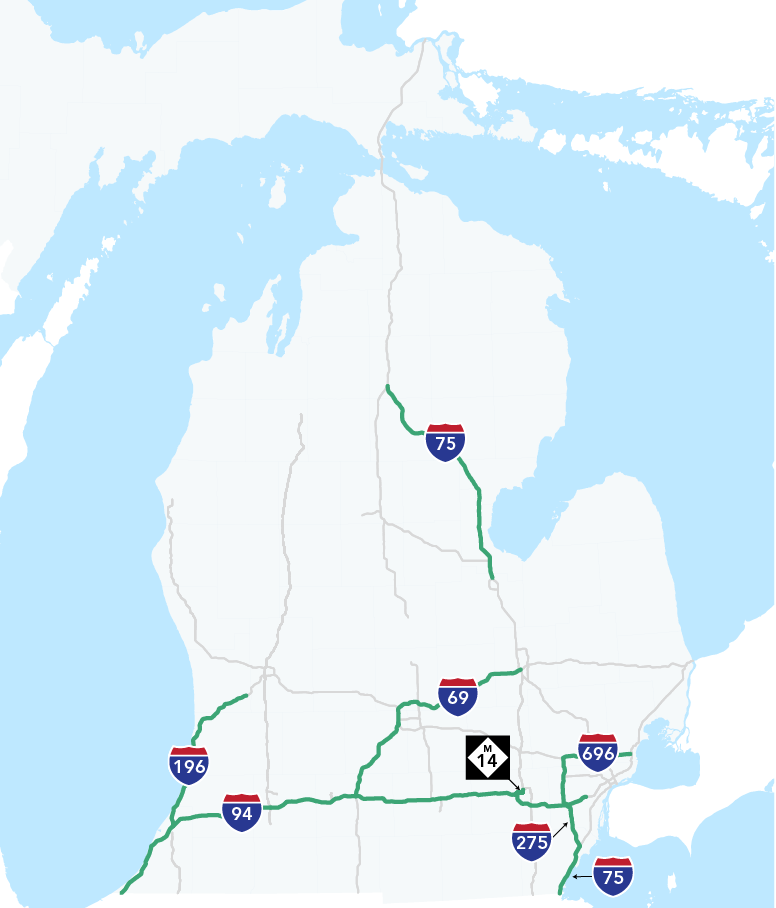Michigan Statewide Tolling Study
Feasibility Analysis and Strategic Implementation Plan
Key study findings
The Feasibility Analysis report includes an analysis of tolling 1,922 miles of limited-access highways in Michigan and includes a screening process to determine appropriate corridors for a more detailed study in the Strategic Implementation Plan report. The corridors studied in this Strategic Implementation Plan include nearly 550 miles and are made up of parts or all of I-69, I-75, I-94, I-196, I-275, I-696, and M-14.
Funding and Program Cost
A new statewide tolling program in Michigan could generate enough revenue to fully fund the life-cycle costs of the tolled roadways, but would require a careful approach to implementation. Total program costs including road work, bridge work, and toll systems from 2026 to 2031 are $8.5 billion, which would be funded by toll revenue bonds. After 2031, toll revenue would fund all ongoing construction, operations, and maintenance in addition to debt service on bonds.

Tolling Implementation
For the analysis, the toll system is assumed to be implemented over five years beginning in 2028. Shown below is the timeline when tolling could begin and the total system mileage by year for implementation.
Timeline to Initial Start of Tolling
| Phase | 2023 | 2024 | 2025 | 2026 | 2027 | 2028 |
|---|---|---|---|---|---|---|
| Toll Program Development and Planning | ||||||
| Legislation – Toll Authority and Collection | ||||||
| Legislation – Rate-Selling and Enforcement |  |
|||||
| Discount, Mitigation, and Benefit Advisory Board | ||||||
| Project Environmental Review | ||||||
| Early Preliminary Design | ||||||
| Back Office & Customer Service Center Integration and Testing | ||||||
| Roadside Toll System Integration and Testing | ||||||
| Investment Grade Traffic and Revenue | ||||||
| Financing | ||||||
| Design and Construction | ||||||
| Start of Tolling |  |
| Legend | |
|---|---|
| Main Phase |  Legislation Complete |
| Procurement |  Start of Tolling |
System Mileage by Year
2028
2029
2030
2031
2032
99 miles
156 miles
324 miles
482 miles
545 miles
0
200
400
600
Mileage
Governance and Policy Recommendations
Along with the toll corridor analysis, the study included governance and policy recommendations to successfully implement a toll system.
- A “hybrid” governance model like the Mackinac Bridge Authority.
- Independent toll rate-setting authority, the ability to sell its bonds and procure it's toll-specific systems while still sharing staff and resources with MDOT.
- The ability to hire necessary tolling-specific leadership and staff as new agency staff/consultants at industry-competitive salary levels should be further evaluated.
- Incorporate tolling at a programmatic level into existing planning processes.
- Perform project-level environmental clearance as required based on project characteristics.
Please take a moment to leave us your comments and share your input. Please note, the form will ask for contact information in order to add you to our stakeholder network.
